
SCARS Institute’s Encyclopedia of Scams™ Published Continuously for 25 Years

Breadcrumbing – A Scammer Manipulation Technique
One of the Many Manipulative Techniques Relationship Scammers use to Create Control over Scam Victims
Psychology of Scams – A SCARS Insight
Author:
• Tim McGuinness, Ph.D., DFin, MCPO, MAnth – Anthropologist, Scientist, Director of the Society of Citizens Against Relationship Scams Inc.
Article Abstract
Breadcrumbing is a manipulative tactic used by scammers to build anticipation and desire during the grooming phase of relationship scams. It involves sending intermittent, flirtatious messages that keep the victim engaged without any intention of forming a genuine relationship. This sporadic communication creates a psychological craving, fueled by the brain’s reward and bonding systems.
Understanding the effects of breadcrumbing is important for scam victims as it reveals that their reactions are driven by natural hormonal responses, such as dopamine, oxytocin, serotonin, and cortisol. These responses make them more susceptible to manipulation and emotional dependency.
Recognizing this can help victims avoid self-blame, understand the manipulation they’ve experienced, and take steps toward recovery.
This knowledge empowers scam victims to seek support, set boundaries, and heal from the emotional damage inflicted by the scam, ultimately preventing future exploitation.
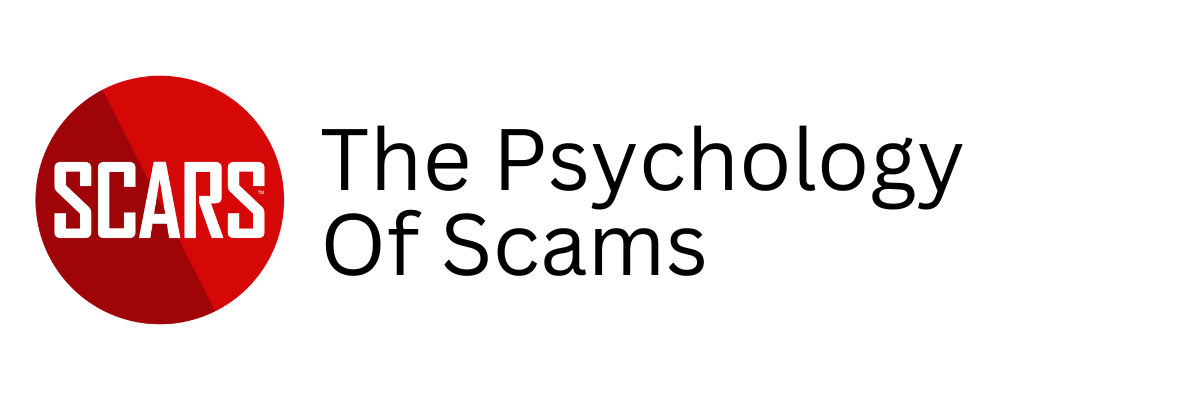
Breadcrumbing: Manipulative Technique used by Scammers to build Anticipation and Desire during the Grooming Phase of Relationship Scams
What is Breadcrumbing?
Breadcrumbing in personal communications refers to a manipulative dating tactic where one person intermittently sends flirtatious or affectionate messages to keep another person interested, without any intention of forming a genuine relationship or commitment. The term “breadcrumbing” comes from the concept of leaving a trail of breadcrumbs, giving someone just enough attention to keep them hooked, but not enough to sustain a meaningful connection. This creates a psychological craving. [See dopamine]
This behavior often involves sporadic and inconsistent communication, such as occasional texts or social media interactions that provide fleeting moments of validation or interest. Scammers naturally use breadcrumbing interactions to maintain control, without investing the time or effort required for a genuine relationship. Ironically, it is done initially without purposeful intent, since it is the case that scammers often have more potential victims in grooming than they have time for, but nevertheless, it works to their advantage.
Breadcrumbing can be emotionally damaging for the person on the receiving end, as it can lead to feelings of confusion, frustration, and self-doubt further enabling the criminals to gain control over their scam victims.
How Breadcrumbing is used in Relationship Scams
Romance or relationship scammers engage in breadcrumbing as part of their tactics to groom and manipulate their scam victims.
Breadcrumbing in the context of romance scams involves the scammer sending intermittent messages or gestures of affection to keep the victim engaged and invested in the false relationship.
Here’s how it is typically employed:
Initial Connection: The scammer initiates contact with the scam victim, often through online dating platforms or social media, and begins grooming them for the scam.
Intermittent Communication: Instead of maintaining consistent communication, the scammer sends irregularly spaced or occasional messages or emails, sometimes with romantic or flattering content. These messages are designed to keep the victim interested and hopeful about the relationship but not pressure them yet.
Reel Them In: The scammer escalates the relationship by professing love (love bombing) or expressing a desire to meet in person. However, they’ll often come up with excuses or delays when it comes to actually meeting face-to-face. Obviously, this is because they are lying, but it has the added benefit of fitting in with the goal of this technique.
Manipulative Tactics: Throughout the interaction, the scammer will use breadcrumbing alongside other manipulative tactics, such as love bombing (excessive flattery and attention), to keep the victim emotionally invested and less likely to question the authenticity of the relationship.
Financial Exploitation: Eventually, the scammer may start requesting money or other forms of financial assistance under various pretenses, such as medical emergencies, travel expenses, or investment opportunities. Even then, the intermittent communication helps to maintain control over the victim by manipulating hormone and neurotransmitter levels using this technique.
Breadcrumbing in romance scams serves to string the victim along, making them more susceptible to the eventual financial exploitation. It preys on the victim’s emotions (driven by hormones and neurotransmitters) and desire for connection, keeping them hopeful despite the inconsistencies in the scammer’s behavior.
Used for Maximum Benefit
Scammers use breadcrumbing during and at the end of a relationship or other type of scam for several strategic reasons, which provide multiple benefits:
During the Scam:
Maintaining Control: Breadcrumbing allows scammers to maintain control over the pace and direction of the relationship. By giving just enough attention to keep the victim interested, they can manipulate the victim’s emotions and responses.
Building Trust: Intermittent, affectionate communication can help build a sense of trust and emotional connection. The victim may start to feel a deep attachment, believing that the scammer is genuinely interested and caring.
Creating Dependence: The unpredictability of breadcrumbing can create an emotional dependency. The victim might become more anxious and eager to receive communication from the scammer, making them more vulnerable and less likely to question the scammer’s motives.
Testing Boundaries: Breadcrumbing helps scammers test the victim’s boundaries and willingness to comply with requests. They can gradually escalate the demands or manipulate the victim into providing personal information or financial assistance.
At the End of the Scam:
Prolonging the Relationship: By breadcrumbing, scammers can prolong the relationship and extend the period over which they can extract money or information from the victim. This maximizes their gains before the victim realizes the deceit.
Mitigating Backlash: Ending the scam abruptly can lead to immediate backlash or suspicion – though often they do exactly that. Breadcrumbing allows scammers to phase out slowly, reducing the chances of the victim taking swift, decisive action like reporting the scam to authorities and trying to recover their money.
Leaving the Door Open: Breadcrumbing can keep the door open for future exploitation. The scammer might leave the victim hopeful for reconciliation or future contact, making it easier to re-engage the victim at a later time for additional scams or by other scammers if they sell or transfer the victim to others.
Minimizing Detection: Consistent and intensive interactions might draw attention from others (friends, family, or authorities). Breadcrumbing, with its intermittent nature, can be less noticeable and thus reduce the risk of the scam being detected and reported.
Breadcrumbing is a manipulative tactic that helps scammers maximize their control, emotional manipulation, and financial gain while minimizing the risk of detection and backlash.
How Does Breadcrumbing Work in the Brain
Breadcrumbing helps scammers maintain control over their victims by manipulating the victim’s emotional and psychological state, which is influenced by hormones and neurotransmitters in the brain. Here’s how this works:
Hormonal and Neurotransmitter Responses in Victims:
Dopamine:
Expectation and Reward: Dopamine is released in the brain in response to rewarding stimuli and the anticipation of pleasure. When a scammer sends a breadcrumbing message, the victim experiences a surge of dopamine, which creates a feeling of pleasure and reinforces the desire for more interaction.
Variable Reward System: The intermittent nature of breadcrumbing mimics a variable reward system, similar to gambling. The unpredictability of when the next message will come makes the brain crave these interactions more, leading to addictive behavior.
Oxytocin:
Bonding and Trust: Oxytocin, often called the “love hormone,” is associated with bonding and trust. Positive interactions, even if sporadic, can release oxytocin, making the victim feel more connected and trusting towards the scammer.
Serotonin:
Mood Regulation: Serotonin helps regulate mood and social behavior. Inconsistent communication can lead to fluctuating serotonin levels, causing mood swings. The victim might feel elated when receiving a message and depressed when communication ceases, creating a roller-coaster effect that keeps them emotionally invested.
Cortisol:
Stress Response: The uncertainty and anxiety caused by breadcrumbing can lead to elevated cortisol levels, the body’s primary stress hormone. This stress can make the victim more desperate for positive interactions to alleviate negative feelings, increasing their dependency on the scammer.
Psychological Control Through Hormonal Manipulation:
Emotional Roller Coaster: The highs and lows created by breadcrumbing can make victims emotionally volatile and more easily manipulated. The anticipation of a message (high dopamine) followed by periods of silence (low dopamine) creates a cycle of craving and relief.
Increased Attachment: The intermittent positive reinforcement (messages from the scammer) leads to a stronger attachment. The brain starts to associate these interactions with pleasure and relief, deepening the victim’s emotional investment in the relationship.
Lowered Critical Thinking: High levels of cortisol from stress can impair cognitive functions like critical thinking and decision-making. This makes it harder for victims to recognize red flags or to think rationally about the situation.
Dependency: The release of oxytocin during positive interactions fosters a sense of bonding and trust, making the victim more likely to overlook inconsistencies or rationalize the scammer’s behavior. This hormonal influence makes them more dependent on the scammer for emotional validation.
By understanding and exploiting these hormonal and neurotransmitter responses, scammers can maintain control over their victims, keeping them engaged and less likely to break off the relationship or recognize the scam.
Summary
Understanding the psychological and physiological effects of breadcrumbing is important for victims because it helps them recognize that their responses are not due to personal weakness or naivety but are natural reactions to manipulative tactics.
Knowledge of how scammers exploit the brain’s reward and bonding systems through intermittent communication can alleviate self-blame and restore self-compassion. This awareness is a vital step in breaking the emotional dependency created by the scam and enables victims to seek appropriate support, set healthy boundaries, and move forward with their recovery.
By realizing the profound impact of these manipulations, victims can better understand their experiences and take empowered steps toward healing.
More About Manipulation:
- About Hormones & Neurotransmitters – An Overview – 2024 (scampsychology.org)
- SCARS Manual Of Cognitive Biases – 2024 (scampsychology.org)
- Cortisol And Scam Victims – 2024 (scampsychology.org)
- Dopamine And Scam Victims – 2024 (scampsychology.org)
- Dopamine Signaling And The Neurology Of Scam Victims – 2024 (scampsychology.org)
- Limerence/Obsessive Love Disorder – When Your Hormones & Neurotransmitters Rule – 2024 (scamsnow.com)
- Why Are We More Likely To Trust Total Strangers Now? 2024 (scamsnow.com)
Statement About Victim Blaming
SCARS Institute articles examine different aspects of the scam victim experience, as well as those who may have been secondary victims. This work focuses on understanding victimization through the science of victimology, including common psychological and behavioral responses. The purpose is to help victims and survivors understand why these crimes occurred, reduce shame and self-blame, strengthen recovery programs and victim opportunities, and lower the risk of future victimization.
At times, these discussions may sound uncomfortable, overwhelming, or may be mistaken for blame. They are not. Scam victims are never blamed. Our goal is to explain the mechanisms of deception and the human responses that scammers exploit, and the processes that occur after the scam ends, so victims can better understand what happened to them and why it felt convincing at the time, and what the path looks like going forward.
Articles that address the psychology, neurology, physiology, and other characteristics of scams and the victim experience recognize that all people share cognitive and emotional traits that can be manipulated under the right conditions. These characteristics are not flaws. They are normal human functions that criminals deliberately exploit. Victims typically have little awareness of these mechanisms while a scam is unfolding and a very limited ability to control them. Awareness often comes only after the harm has occurred.
By explaining these processes, these articles help victims make sense of their experiences, understand common post-scam reactions, and identify ways to protect themselves moving forward. This knowledge supports recovery by replacing confusion and self-blame with clarity, context, and self-compassion.
Additional educational material on these topics is available at ScamPsychology.org – ScamsNOW.com and other SCARS Institute websites.
Psychology Disclaimer:
All articles about psychology and the human brain on this website are for information & education only
The information provided in this article is intended for educational and self-help purposes only and should not be construed as a substitute for professional therapy or counseling.
While any self-help techniques outlined herein may be beneficial for scam victims seeking to recover from their experience and move towards recovery, it is important to consult with a qualified mental health professional before initiating any course of action. Each individual’s experience and needs are unique, and what works for one person may not be suitable for another.
Additionally, any approach may not be appropriate for individuals with certain pre-existing mental health conditions or trauma histories. It is advisable to seek guidance from a licensed therapist or counselor who can provide personalized support, guidance, and treatment tailored to your specific needs.
If you are experiencing significant distress or emotional difficulties related to a scam or other traumatic event, please consult your doctor or mental health provider for appropriate care and support.
Also read our SCARS Institute Statement about Professional Care for Scam Victims – click here to go to our ScamsNOW.com website.
If you are in crisis, feeling desperate, or in despair please call 988 or your local crisis hotline.
-/ 30 /-
What do you think about this?
Please share your thoughts in a comment below!
Table of Contents
- One of the Many Manipulative Techniques Relationship Scammers use to Create Control over Scam Victims
- Article Abstract
- Breadcrumbing: Manipulative Technique used by Scammers to build Anticipation and Desire during the Grooming Phase of Relationship Scams
- What is Breadcrumbing?
- How Breadcrumbing is used in Relationship Scams
- Used for Maximum Benefit
- How Does Breadcrumbing Work in the Brain
- Summary
- More About Manipulation:
LEAVE A COMMENT?
Thank you for your comment. You may receive an email to follow up. We never share your data with marketers.
Recent Comments
On Other Articles
- on Love Bombing And How Romance Scam Victims Are Forced To Feel: “I was love bombed to the point that I would do just about anything for the scammer(s). I was told…” Feb 11, 14:24
- on Dani Daniels (Kira Lee Orsag): Another Scammer’s Favorite: “You provide a valuable service! I wish more people knew about it!” Feb 10, 15:05
- on Danielle Delaunay/Danielle Genevieve – Stolen Identity/Stolen Photos – Impersonation Victim UPDATED 2024: “We highly recommend that you simply turn away form the scam and scammers, and focus on the development of a…” Feb 4, 19:47
- on The Art Of Deception: The Fundamental Principals Of Successful Deceptions – 2024: “I experienced many of the deceptive tactics that romance scammers use. I was told various stories of hardship and why…” Feb 4, 15:27
- on Danielle Delaunay/Danielle Genevieve – Stolen Identity/Stolen Photos – Impersonation Victim UPDATED 2024: “Yes, I’m in that exact situation also. “Danielle” has seriously scammed me for 3 years now. “She” (he) doesn’t know…” Feb 4, 14:58
- on An Essay on Justice and Money Recovery – 2026: “you are so right I accidentally clicked on online justice I signed an agreement for 12k upfront but cd only…” Feb 3, 08:16
- on The SCARS Institute Top 50 Celebrity Impersonation Scams – 2025: “Quora has had visits from scammers pretending to be Keanu Reeves and Paul McCartney in 2025 and 2026.” Jan 27, 17:45
- on Scam Victims Should Limit Their Exposure To Scam News & Scammer Photos: “I used to look at scammers photos all the time; however, I don’t feel the need to do it anymore.…” Jan 26, 23:19
- on After A Scam, No One Can Tell You How You Will React: “This article was very informative, my scams happened 5 years ago; however, l do remember several of those emotions and/or…” Jan 23, 17:17
- on Situational Awareness and How Trauma Makes Scam Victims Less Safe – 2024: “I need to be more observant and I am practicing situational awareness. I’m saving this article to remind me of…” Jan 21, 22:55
ARTICLE META
Important Information for New Scam Victims
- Please visit www.ScamVictimsSupport.org – a SCARS Website for New Scam Victims & Sextortion Victims
- Enroll in FREE SCARS Scam Survivor’s School now at www.SCARSeducation.org
- Please visit www.ScamPsychology.org – to more fully understand the psychological concepts involved in scams and scam victim recovery
If you are looking for local trauma counselors please visit counseling.AgainstScams.org or join SCARS for our counseling/therapy benefit: membership.AgainstScams.org
If you need to speak with someone now, you can dial 988 or find phone numbers for crisis hotlines all around the world here: www.opencounseling.com/suicide-hotlines
A Note About Labeling!
We often use the term ‘scam victim’ in our articles, but this is a convenience to help those searching for information in search engines like Google. It is just a convenience and has no deeper meaning. If you have come through such an experience, YOU are a Survivor! It was not your fault. You are not alone! Axios!
A Question of Trust
At the SCARS Institute, we invite you to do your own research on the topics we speak about and publish, Our team investigates the subject being discussed, especially when it comes to understanding the scam victims-survivors experience. You can do Google searches but in many cases, you will have to wade through scientific papers and studies. However, remember that biases and perspectives matter and influence the outcome. Regardless, we encourage you to explore these topics as thoroughly as you can for your own awareness.
Statement About Victim Blaming
SCARS Institute articles examine different aspects of the scam victim experience, as well as those who may have been secondary victims. This work focuses on understanding victimization through the science of victimology, including common psychological and behavioral responses. The purpose is to help victims and survivors understand why these crimes occurred, reduce shame and self-blame, strengthen recovery programs and victim opportunities, and lower the risk of future victimization.
At times, these discussions may sound uncomfortable, overwhelming, or may be mistaken for blame. They are not. Scam victims are never blamed. Our goal is to explain the mechanisms of deception and the human responses that scammers exploit, and the processes that occur after the scam ends, so victims can better understand what happened to them and why it felt convincing at the time, and what the path looks like going forward.
Articles that address the psychology, neurology, physiology, and other characteristics of scams and the victim experience recognize that all people share cognitive and emotional traits that can be manipulated under the right conditions. These characteristics are not flaws. They are normal human functions that criminals deliberately exploit. Victims typically have little awareness of these mechanisms while a scam is unfolding and a very limited ability to control them. Awareness often comes only after the harm has occurred.
By explaining these processes, these articles help victims make sense of their experiences, understand common post-scam reactions, and identify ways to protect themselves moving forward. This knowledge supports recovery by replacing confusion and self-blame with clarity, context, and self-compassion.
Additional educational material on these topics is available at ScamPsychology.org – ScamsNOW.com and other SCARS Institute websites.
Psychology Disclaimer:
All articles about psychology and the human brain on this website are for information & education only
The information provided in this article is intended for educational and self-help purposes only and should not be construed as a substitute for professional therapy or counseling.
While any self-help techniques outlined herein may be beneficial for scam victims seeking to recover from their experience and move towards recovery, it is important to consult with a qualified mental health professional before initiating any course of action. Each individual’s experience and needs are unique, and what works for one person may not be suitable for another.
Additionally, any approach may not be appropriate for individuals with certain pre-existing mental health conditions or trauma histories. It is advisable to seek guidance from a licensed therapist or counselor who can provide personalized support, guidance, and treatment tailored to your specific needs.
If you are experiencing significant distress or emotional difficulties related to a scam or other traumatic event, please consult your doctor or mental health provider for appropriate care and support.
Also read our SCARS Institute Statement about Professional Care for Scam Victims – click here to go to our ScamsNOW.com website.


![Breadcrumbing - A Scammer Manipulation Technique - 2024 Teen Sextortion Scams 2024 About Sextortion Scams - Documentary - A Victim's Story - 2024 [VIDEO] - on SCARS RomanceScamsNOW.com - The Encyclopedia of Scams](https://romancescamsnow.com/wp-content/uploads/2024/06/Teen-Sextortion-Scams-2024.png)
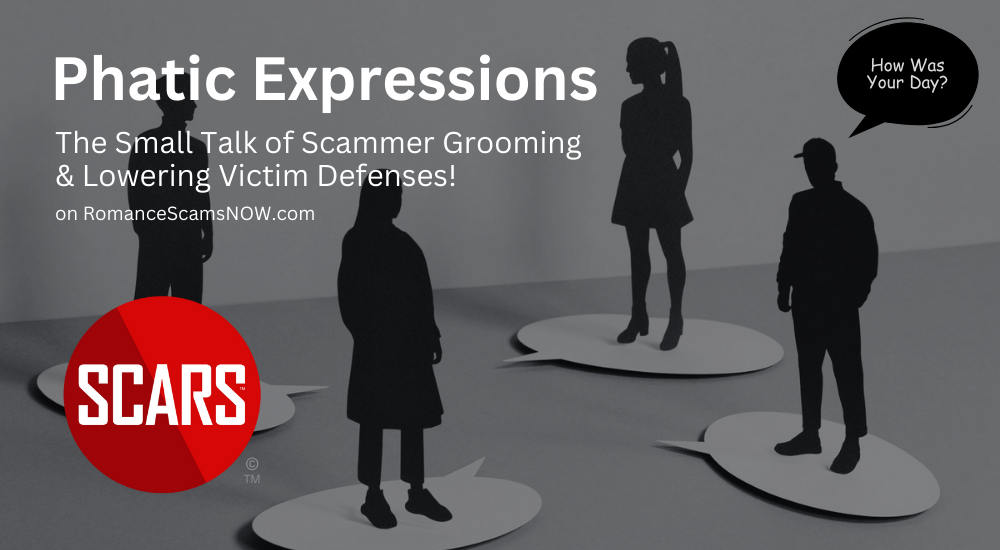
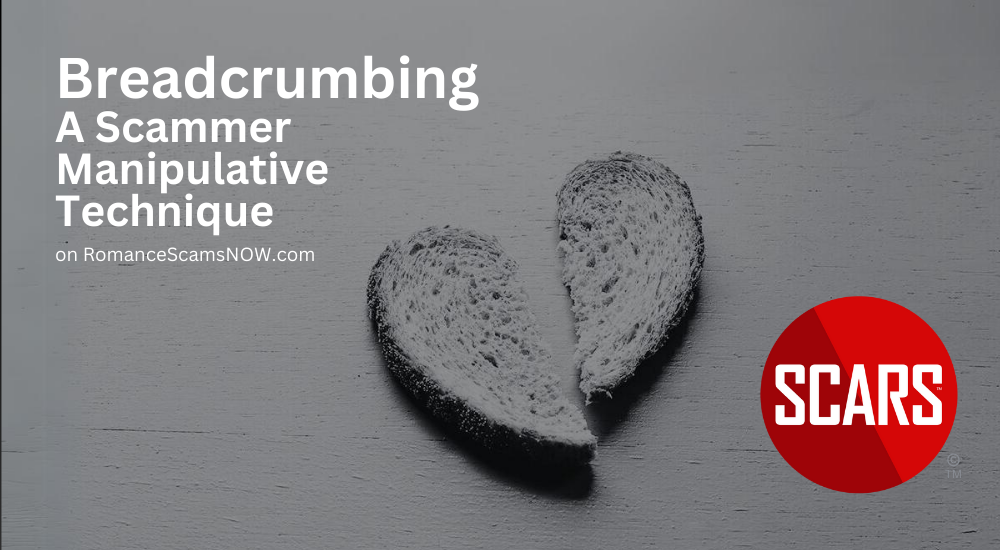

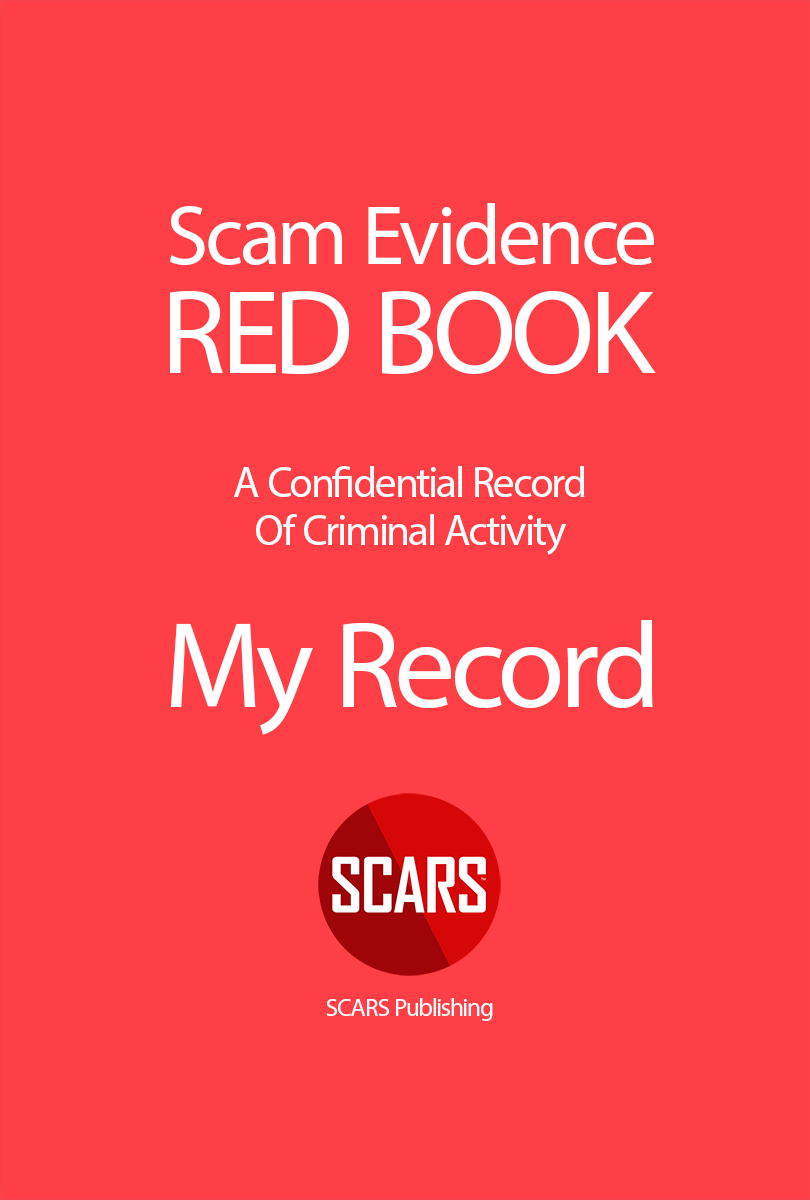
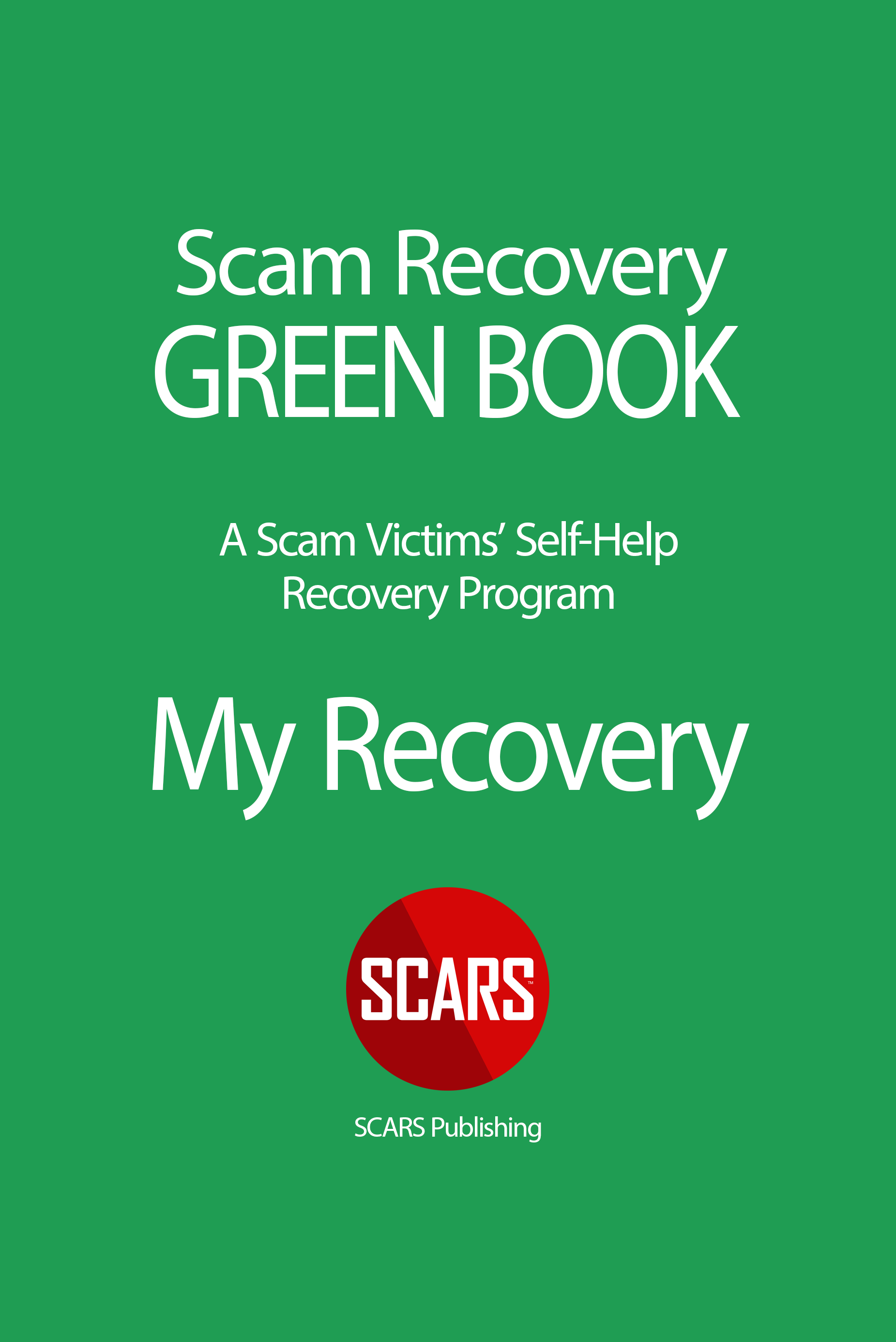










Another great article on how victims of scams can be manipulated using science & psychology.